Lockdown lessons from Myrtle the pit bull
04 August 2020 | Story Carla Bernardo. Photos Carla Bernardo. Read time 7 min.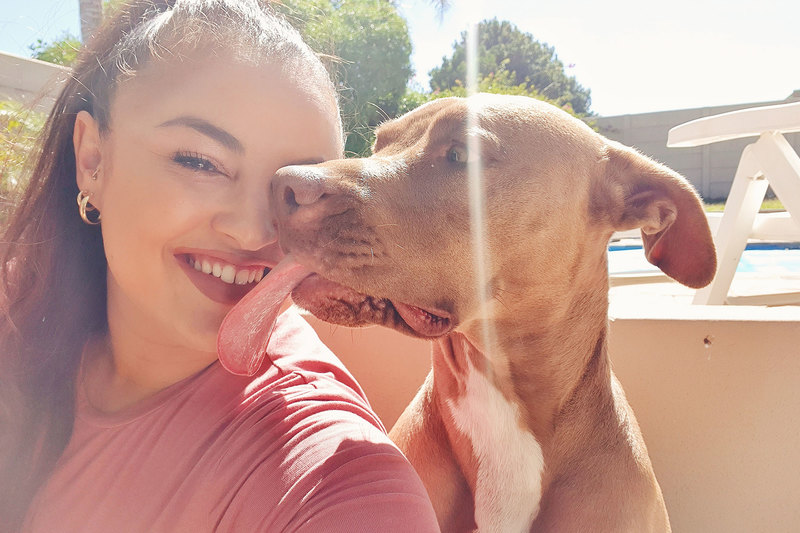
#UCTLockDownLetters is a feature on the University of Cape Town (UCT) news site. This contribution comes from Carla Bernardo, a writer in UCT’s Communication and Marketing Department. This also serves as the last letter in our series.
3 August 2020
I’ve been wanting to make my contribution to #UCTLockdownLetters for a while now, but inspiration never quite struck.
I have been working remotely since mid-March and, as I am sure is the experience of many of my fellow colleagues and classmates, motivation and inspiration can be hard to find when you’re stuck at home without your usual sources of creativity. And again, as I am sure has been the case for many, from a mental health perspective, lockdown has taken its toll.
I am very fortunate to have a job (I am a writer in UCT’s Communication and Marketing Department), to have the incredible support of my lecturers from the Centre for Film and Media Studies (I am pursuing my MA in Political Communication) and to have the ability to connect to loved ones over the phone and online. But that doesn’t mean it’s been easy.
When I was younger, I had been diagnosed with depression and anxiety, and with the pandemic, this has resurfaced. We know now that this is happening all over the world and the mental health burden of COVID-19 is particularly heavy for those of us who have pre-existing conditions.
Fortunately, I am blessed with an incredible support network of family; friends; my fiancé, Carl; colleagues and a brilliant psychologist and psychiatrist. But another powerful source of support has been my puppy (no matter the age, she’ll always be my puppy), Myrtle.
Myrtle is a five-year-old American pit bull and is my ‘dogter’. During Level 5 of the lockdown, I had to move Myrtle to my mother and stepfather in Grassy Park so that she could have space to play. Carl and I live in a one-bedroom apartment in Salt River, so the restriction on walking one’s dog meant that I had to separate from Myrtle. I now see the enormous, negative effect this had on my mental health as my dogs have always been a source of support and comfort for me. Nonetheless, when restrictions were eased, we immediately moved her back home. Through our time apart, and then spending much more time together because of working from home, I have learned several lessons from my fur child.
Here are six of those lessons, accompanied by photos, that I hope you’ll enjoy and find value in.
Stay active
This was really hard in the initial stages of lockdown, particularly as I was battling through depression. But as my psychologist keeps pointing out, it is so important to commit to daily outdoor activities. This doesn’t have to be hectic: you can commit to making 10 000 steps a day (it’s actually not that hard, even for a couch potato like me), allocate an hour a day at a nearby park or field or follow one of the many personal trainers like @sanch_fit_training on Instagram for free fitness advice.
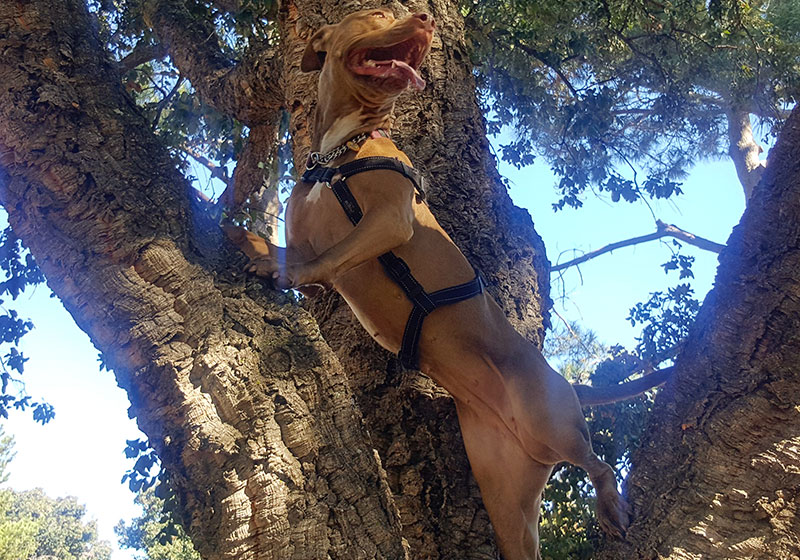
Do what makes you happy
Whether it’s ‘booping’ your nose into your owner’s face à la Myrtle, colouring in, finding new music, gardening, baking or going for a hike, ensure that you’re making time for the things that make YOU smile. Block out time in your day to do one thing that makes you happy, and don’t ever go a week without doing so.
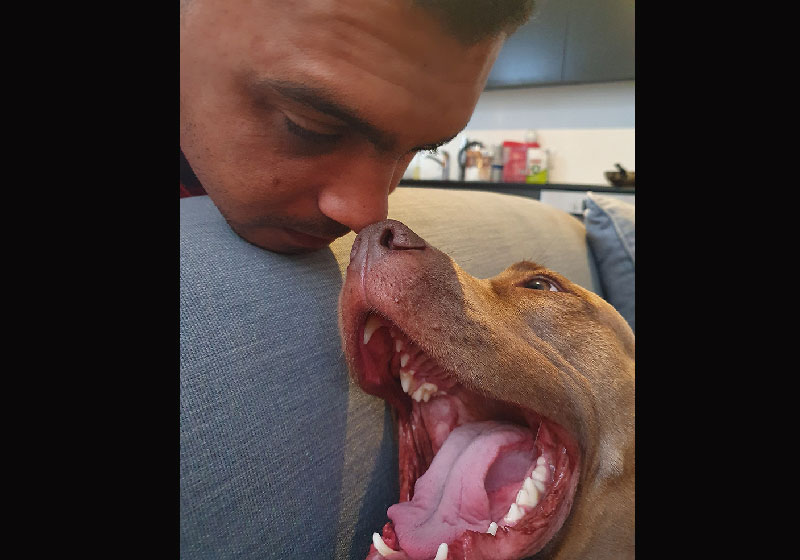
Take time to destress
Living through a pandemic is no joke. I think I am shocked at least once a day that we’re in this situation, and so finding time to work through those fears and anxiety and to work through the stress of it all is so important. Myrtle enjoys tearing apart sticks and rope as her way to destress; I like to binge on Netflix series (we recently flew through Cursed). Find what works for you.
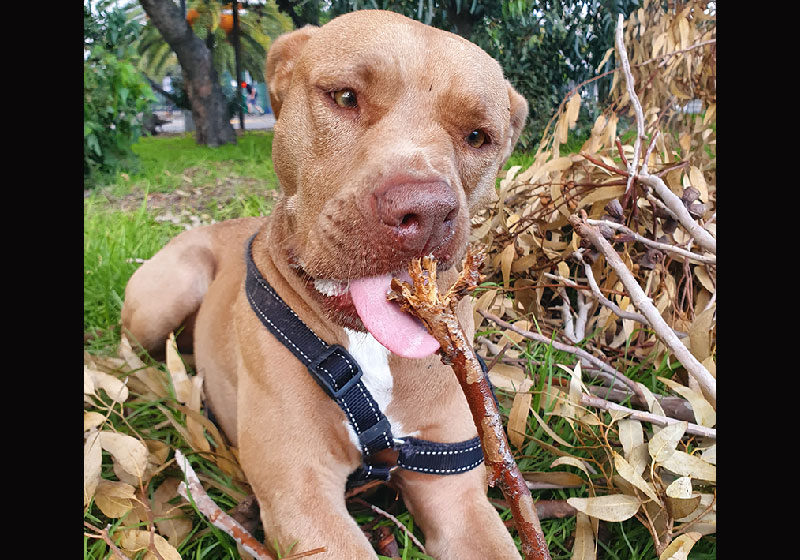
Stay connected
Be sure to connect with your loved ones. Many of us have been physically cut off from our support networks, which makes coping with this pandemic a lot harder. Whether it’s messaging on WhatsApp, having a video call on Zoom or chatting over the phone, make sure that you are connecting daily. Perhaps you could even meet up for a walk outdoors – but remember to avoid overcrowded places, wear your masks and keep a safe distance.
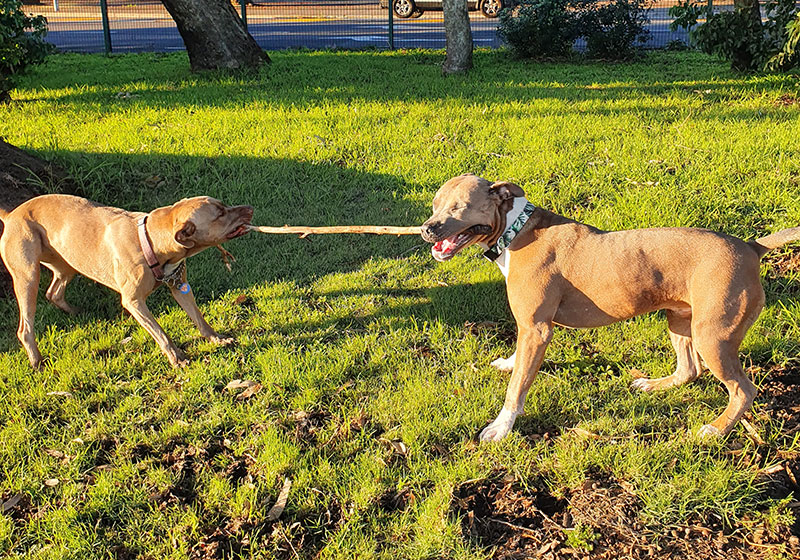
Enjoy the little things
Myrtle really enjoys rolling in bird poo. It’s a pain to clean off every day, but she loves it so there’s no way I am denying her that. That’s her enjoying the little things. As for me, I have started looking for the little things lockdown has afforded me: more quality time with her and Carl, time to pick up old hobbies, a chance to wear what I want and never having to put on makeup, as well as spending time discovering untold stories from my mother and father.
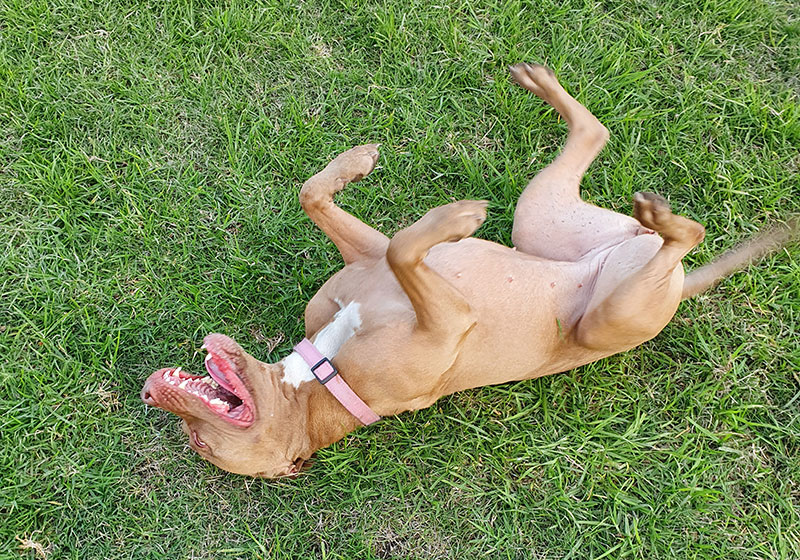
Finally, get your sleep in check!
I say this, but I know how hard it’s been to keep a set sleep schedule during lockdown. There are many different tricks and treatments to help you sleep and I’ve found this to be a big part of the puzzle for surviving lockdown, particularly if your mental health has taken a knock. I think Myrtle’s many nap sessions and her deep sleep at night (which is always filled with dreams and snoring) are what makes her such a happy and healthy girl. While we can’t take siestas whenever we feel like it and have very different sleep patterns to dogs, we can learn to prioritise sleep and rest a lot better.
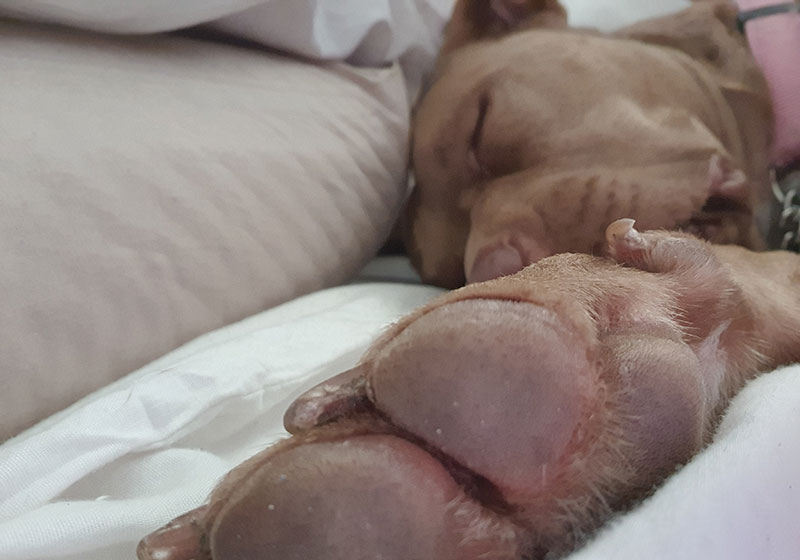
 This work is licensed under a Creative Commons Attribution-NoDerivatives 4.0 International License.
This work is licensed under a Creative Commons Attribution-NoDerivatives 4.0 International License.
Please view the republishing articles page for more information.










